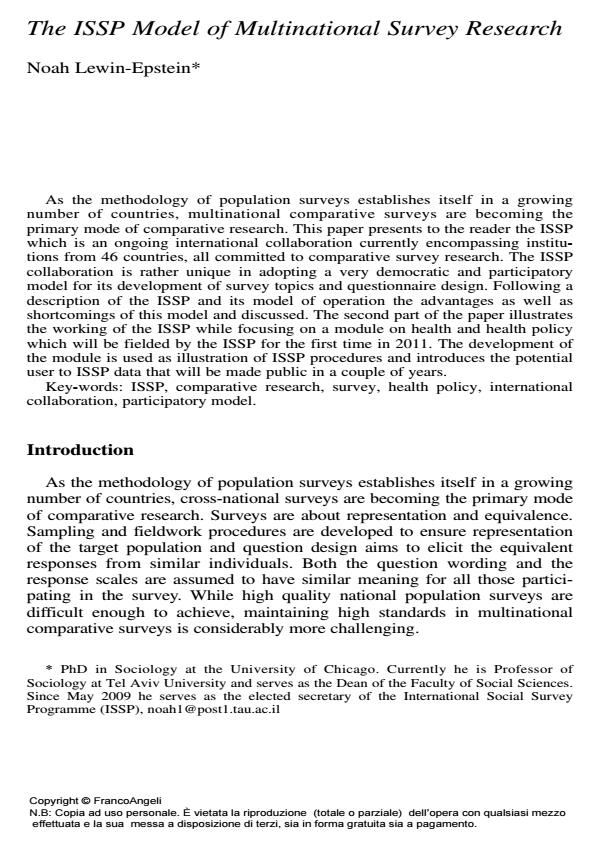The ISSP Model of Multinational Survey Research
Journal title SALUTE E SOCIETÀ
Author/s Noah Lewin-Epstein
Publishing Year 2010 Issue 2010/suppl. En. 2
Language English Pages 14 P. 118-131 File size 373 KB
DOI 10.3280/SES2010-SU1008
DOI is like a bar code for intellectual property: to have more infomation
click here
Below, you can see the article first page
If you want to buy this article in PDF format, you can do it, following the instructions to buy download credits

FrancoAngeli is member of Publishers International Linking Association, Inc (PILA), a not-for-profit association which run the CrossRef service enabling links to and from online scholarly content.
As the methodology of population surveys establishes itself in a growing number of countries, multinational comparative surveys are becoming the primary mode of comparative research. This paper presents to the reader the ISSP which is an ongoing international collaboration currently encompassing institutions from 46 countries, all committed to comparative survey research. The ISSP collaboration is rather unique in adopting a very democratic and participatory model for its development of survey topics and questionnaire design. Following a description of the ISSP and its model of operation the advantages as well as shortcomings of this model and discussed. The second part of the paper illustrates the working of the ISSP while focusing on a module on health and health policy which will be fielded by the ISSP for the first time in 2011. The development of the module is used as illustration of ISSP procedures and introduces the potential user to ISSP data that will be made public in a couple of years.
Keywords: ISSP, comparative research, survey, health policy, international collaboration, participatory model.
Noah Lewin-Epstein, The ISSP Model of Multinational Survey Research in "SALUTE E SOCIETÀ" suppl. En. 2/2010, pp 118-131, DOI: 10.3280/SES2010-SU1008